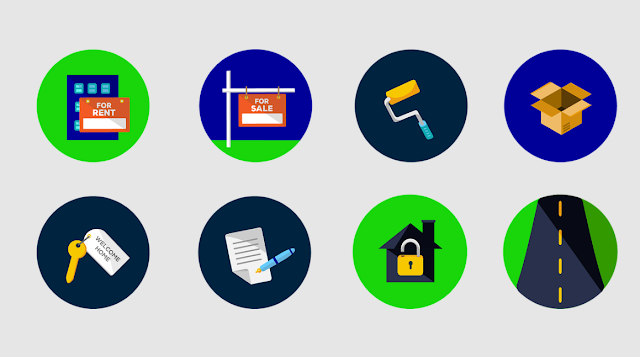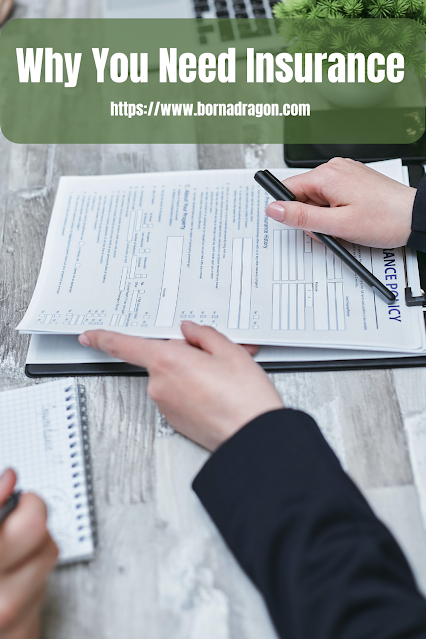Property investment can be exciting and profitable; it just requires careful thought and consideration before embarking on the financial journey. So let's discuss all of these details to help guide our decision.
Prioritizing Your Objectives
Before looking through real estate listings, you must establish your investment goals. For example, are you hoping for capital growth whereby the property's value increases over time, or do you plan to generate rental yields as your primary objective? Clearly defining these objectives in advance can guide your strategy and property choices.
Conduct Thorough Research
Property investment isn't one size fits all: different markets and property types offer different investment returns. Therefore, before embarking on any property venture, conduct in-depth research.
Research should always be your go-to option when selecting a location. Be sure to investigate real estate market trends, employment rates, demographic changes and infrastructure development plans of the areas you are considering before making your final decision.
Property Type
Property type is also an integral factor. For example, residential properties (apartments, condos or single-family homes) often provide more reliable rental income but tend to experience slower capital appreciation; commercial properties often present higher returns but come with increased risks, require additional management oversight, and can have more extended vacancy periods than their residential counterparts.
Assess Your Financial Position
Before investing, it is crucial to assess your financial position. For example, what are your borrowing capacities and maximum loan limits available from banks or lenders? Answering such questions will play an important role in setting your budget for property purchases.
Remember, however, that property costs won't be your only expenditures; you should also account for ongoing costs such as insurance policies, property management fees, repair and maintenance expenses, property taxes and potential vacancy periods.
Assemble Your Team
A professional team of experts can be invaluable when starting as a real estate investor. This may include real estate agents, mortgage brokers, property managers, tax accountants and lawyers that can assist with navigating the complexities of property investment as well as making sound financial decisions.
Understanding the Market Cycle
Property markets tend to fluctuate over time, moving through cycles of growth, stability and even decline. Being aware of these cycles can influence when and where you make purchases. For instance, a declining market could offer excellent buying opportunities at reduced costs, while an upswing might suggest the short-term potential for profit-making investments.
Legal and Tax Implications
Before purchasing property, it's essential to understand its tax and legal repercussions, which vary depending on where it's bought in terms of country, state, or region.
As rental income is usually subject to taxation and must be reported on your income tax return, certain expenses related to your property could qualify as tax-deductible items. Any potential benefits can affect your return on investment, and it would be wise to consult a tax professional before making decisions on investing or leasing properties.
Legal requirements can also be complex. For example, property laws establish the rights and responsibilities of landlords and tenants, which can enormously affect your real estate investments. Some regions, for instance, may enforce strict rent control or eviction processes, which can have significant ramifications on investment properties.
Risk Management
Any investment carries some degree of risk, and property is no exception. Unexpected maintenance expenses, difficult tenants or market downturns that decrease its value could all present challenges that must be managed effectively to remain profitable investments.
Utilize Property Management Services
Once you've made an investment property purchase, managing it effectively to reach your investment goals is critical to meeting them. Property management services can prove invaluable here. Property management services will handle the day-to-day tasks associated with your property, such as finding and screening tenants, collecting rent on time, attending to maintenance requests and adhering to local landlord-tenant laws. Furthermore, they'll provide you with regular reports on the financial performance of your property to enable you to track its return on investment accurately. By delegating these tasks to trusted professionals, you can reap all the economic benefits of property investment without being bogged down by daily details.
Title Searches
A critical step in any property investment process is conducting a title search, such as those offered by https://titlesearchdirect.com/ , that examines public records to provide insight into a specific property's history. Title searches verify legal ownership and reveal any existing claims or liens against the property, such as unpaid taxes, mortgage arrears, or easements, that could impact its use by you as the buyer. By uncovering potential issues before purchasing, title searches allow buyers to make more informed decisions and avoid unexpected complications later. A title search should always be performed before investing in property - this ensures it remains sound and secure!
Property investing should not be taken lightly, but it can effectively build wealth when done carefully. Take time to identify your financial goals, research the market and build a team.










.png)



















.jpg)










